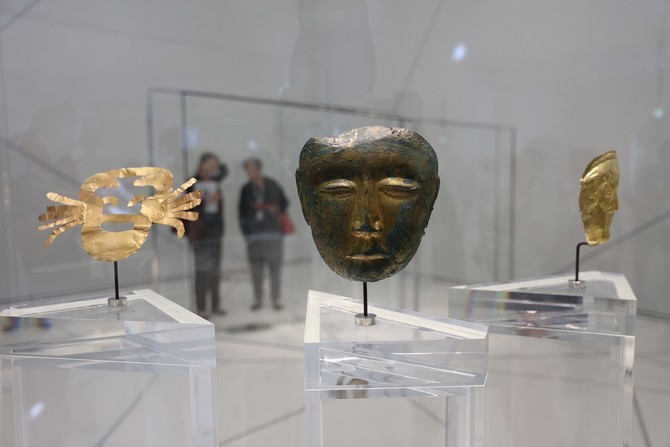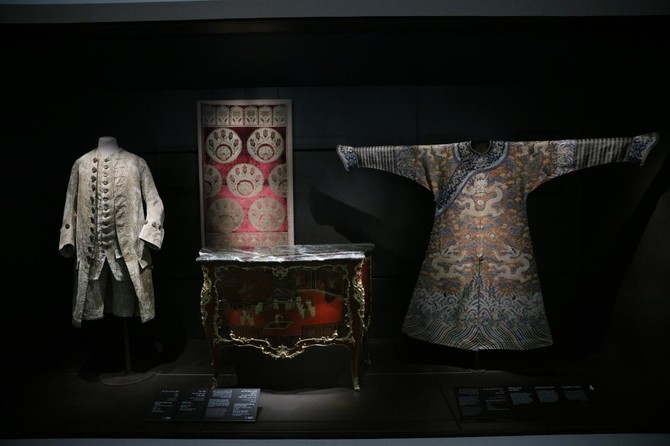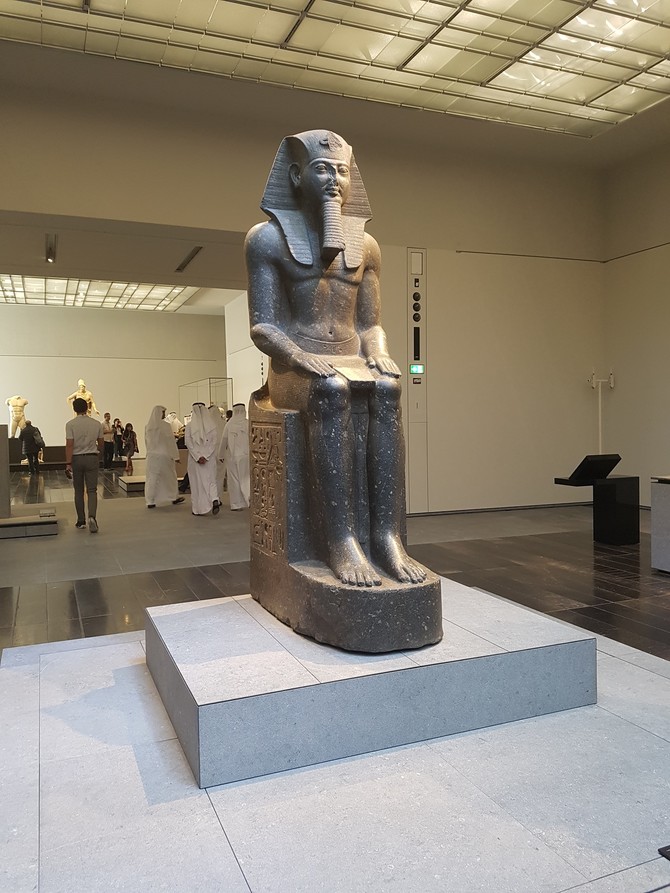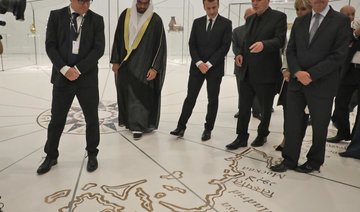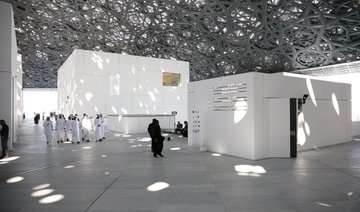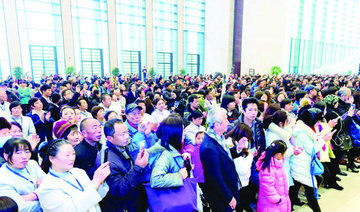ABU DHABI: You could not have missed the buzz around the opening of Louvre Abu Dhabi even if you tried. Today, it officially flings open its doors to the public with a three-day program of festivities planned for the historic launch (tickets for opening day are reportedly sold out already).
Described by Manuel Rabate, director of Louvre Abu Dhabi, as a “metaphor for cross-cultural dialogue” in a time when humanity seems ever more divided, the museum is being hailed as a new world museum of the 21st century.
All the hyperbole seems justified when you see how it has been curated — traditional museography has been turned on its head to create a narrative that takes you through the history of mankind, from ancient to post-modern, with artworks that are grouped together according to contextual relevance.
Not only does it carry the name of the venerated Paris museum, Louvre Abu Dhabi houses rare artworks loaned from Musée du Louvre, plus 12 other museums across France, aside from its own collections and loans from museums in the region.
As the Musée du Louvre in Paris celebrates with a projection show on its pyramid tonight, join in the fun and read more about the nine top must-sees at this iconic museum.
1. Germination: A three-part installation by Giuseppe Penone, this commission by Louvre Abu Dhabi aims to “reveal the connection between cultures.” The main part is “leaves of light” — a bronze tree which complements the museum’s architecture, particularly the lacy dome through which “a rain of sunlight” filters through — while a wall of hand-drawn porcelain tiles, and a selection of pottery made with clays sourced from UAE, make up the trio. This installation, along with another commission, a series of textual limestone reliefs by Jenny Holzer, can be found in the outdoor plaza area of the museum.
2. Statue of King Ramesses II: Housed in Gallery 2, this striking four-ton Diorite statue of an Egyptian king is impossible to miss. On loan from Louvre Paris, this piece is emblematic of the chapter exploring the birth of the first great powers around the world.
3. Ancient world map from Iraq: As people started to voyage in the 15th and 16th centuries, global perspectives changed. A rare 15th century map of the world from Iraq in the Cosmography gallery shows how perceptions of the world varied. Other highlights in this section include a Portuguese six-fold screen map and an illustrated globe by Italian cosmographer Vincenzo Coronelli.
4. Vatican’s Apollo: The Apollo Belvedere, considered one of the most iconic classical sculptures, enjoys pride of place at the Vatican museum. But here at Louvre Abu Dhabi (Gallery 7) you can view a bronze cast of the marble sculpture, on loan from the Chateau de Fontainebleu.
5. La Belle Ferronnierre: Also known as the Woman Portrait, this painting by one of the greatest Renaissance artists, Leonardo da Vinci, is another loan from Musée du Louvre, Paris. It marks the growing importance of portraiture in European art, as well as a rediscovery of the philosophies from antiquity, interpreted through newer optics.
6. Vincent Van Gogh’s Self-Portrait: This iconic oil on canvas needs little introduction, and enjoys pride of place in Louvre Abu Dhabi’s ‘Modern world’ gallery, courtesy of Musée d’Orsay. Rubbing shoulders with Van Gogh are significant pieces from other greats of the same era, such as Claude Monet and Paul Gaugin.
7. Food for thought – Al Muallaqat: This interesting installation by Saudi Arabian artist Maha Malluh celebrates the region’s heritage. An artistically presented set of old, blackened cooking pots — used to make traditional goat’s stew over an open fire — tell the stories of a nomadic past.
8. Fountain of light: Consider this the closing crescendo. A glittering installation made of crystal chandeliers by contemporary Chinese artist Ai Weiwei references the historic tower of Babel, even as it addresses questions of diversity and existentialism in a hyper-connected globalized modern world. It’s located in the last gallery, which is called “A global stage.”
9. Children’s museum: Thoughtfully designed to inculcate a love for the arts in children from a young age, this compact, colorful space offers interactive exhibits at eye level for the little people. The current exhibition showcases works such as ceramics and cabinetry from across the globe, to help kids explore shapes and colors.


